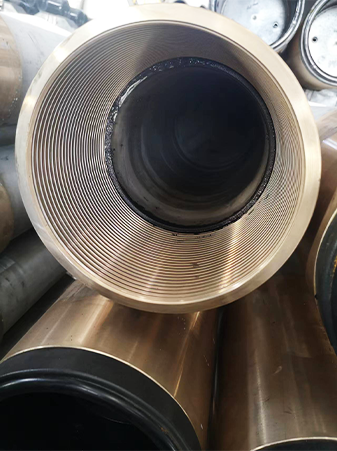- Afrikaans
- Albanian
- Amharic
- Arabic
- Armenian
- Azerbaijani
- Basque
- Belarusian
- Bengali
- Bosnian
- Bulgarian
- Catalan
- Cebuano
- Corsican
- Croatian
- Czech
- Danish
- Dutch
- English
- Esperanto
- Estonian
- Finnish
- French
- Frisian
- Galician
- Georgian
- German
- Greek
- Gujarati
- Haitian Creole
- hausa
- hawaiian
- Hebrew
- Hindi
- Miao
- Hungarian
- Icelandic
- igbo
- Indonesian
- irish
- Italian
- Japanese
- Javanese
- Kannada
- kazakh
- Khmer
- Rwandese
- Korean
- Kurdish
- Kyrgyz
- Lao
- Latin
- Latvian
- Lithuanian
- Luxembourgish
- Macedonian
- Malgashi
- Malay
- Malayalam
- Maltese
- Maori
- Marathi
- Mongolian
- Myanmar
- Nepali
- Norwegian
- Norwegian
- Occitan
- Pashto
- Persian
- Polish
- Portuguese
- Punjabi
- Romanian
- Russian
- Samoan
- Scottish Gaelic
- Serbian
- Sesotho
- Shona
- Sindhi
- Sinhala
- Slovak
- Slovenian
- Somali
- Spanish
- Sundanese
- Swahili
- Swedish
- Tagalog
- Tajik
- Tamil
- Tatar
- Telugu
- Thai
- Turkish
- Turkmen
- Ukrainian
- Urdu
- Uighur
- Uzbek
- Vietnamese
- Welsh
- Bantu
- Yiddish
- Yoruba
- Zulu
Stainless Steel Pipe Coupling Solutions for Durable and Reliable Connections
Understanding Pipe Coupling in Stainless Steel Features, Applications, and Advantages
Pipe coupling is a critical component in various industries, facilitating the connection of two sections of pipe while allowing fluid or gas to pass through seamlessly. Among the materials commonly used for these couplings, stainless steel stands out due to its unique properties and versatility. This article aims to delve into the key features, applications, and advantages of stainless steel pipe couplings.
Key Features of Stainless Steel Pipe Couplings
Stainless steel pipe couplings are available in a variety of types and configurations, tailored to meet specific industry requirements. The most common types include threaded couplings, socket weld couplings, and butt weld couplings. Each type serves a unique purpose while ensuring a tight, secure connection between pipes.
One of the defining characteristics of stainless steel is its excellent corrosion resistance. The alloying elements, primarily chromium, provide a protective layer that prevents oxidation and rusting, making stainless steel couplings suitable for applications involving water, chemicals, and other corrosive substances. Additionally, stainless steel couplings maintain their strength under extreme temperatures, making them ideal for both hot and cold applications.
Another important feature is their durability. Stainless steel is known for its high tensile strength, which means that these couplings can withstand substantial internal and external pressures. This quality is particularly critical in industries such as oil and gas, where high pressures and rigorous conditions are commonplace.
Applications of Stainless Steel Pipe Couplings
The versatile nature of stainless steel pipe couplings makes them suitable for a wide range of applications across various industries. In the oil and gas sector, these couplings are essential for connecting pipelines used in the extraction and transportation of crude oil and natural gas. Their durability and resistance to corrosion ensure that they can handle the aggressive environments often encountered in these processes.
pipe coupling stainless steel

In the food and beverage industry, stainless steel couplings are employed to connect pipes in sanitary processes. Given the stringent hygiene standards that must be maintained, stainless steel's non-reactive surface is ideal for preventing contamination and ensuring the purity of products. Similarly, these couplings are widely used in pharmaceutical manufacturing, where cleanliness and material integrity are paramount.
Additionally, the construction industry relies on stainless steel couplings in plumbing and HVAC systems. Their reliability and strength make them a preferred choice for water supply lines and heating systems, ensuring efficient flow and minimal leakage.
Advantages of Using Stainless Steel Pipe Couplings
Opting for stainless steel pipe couplings comes with a multitude of benefits. First and foremost, their corrosion resistance translates to lower maintenance costs and a longer lifespan. Unlike other materials that may require regular replacement due to rust or degradation, stainless steel maintains its integrity, ultimately saving time and money in the long run.
Another advantage is their ease of installation. Many stainless steel couplings are designed for quick and straightforward assembly, minimizing downtime during installation. This is particularly beneficial in industries where time is of the essence, such as construction and manufacturing.
Furthermore, stainless steel is a sustainable material. It is 100% recyclable, which means that using stainless steel couplings contributes to environmental conservation. Companies that prioritize sustainability can take pride in choosing materials that support a circular economy.
Conclusion
In conclusion, stainless steel pipe couplings are indispensable components across various industries. Their unique features, including excellent corrosion resistance, durability, and versatility, make them an ideal choice for connecting pipes in diverse applications. With their numerous advantages, including cost-effectiveness and environmental sustainability, stainless steel pipe couplings will continue to play a crucial role in modern engineering and industrial processes, providing reliable solutions for the future.
-
Tubing Pup Joints: Essential Components for Oil and Gas OperationsNewsJul.10,2025
-
Pup Joints: Essential Components for Reliable Drilling OperationsNewsJul.10,2025
-
Pipe Couplings: Connecting Your World EfficientlyNewsJul.10,2025
-
Mastering Oilfield Operations with Quality Tubing and CasingNewsJul.10,2025
-
High-Quality Casing Couplings for Every NeedNewsJul.10,2025
-
Boost Your Drilling Efficiency with Premium Crossover Tools & Seating NipplesNewsJul.10,2025







